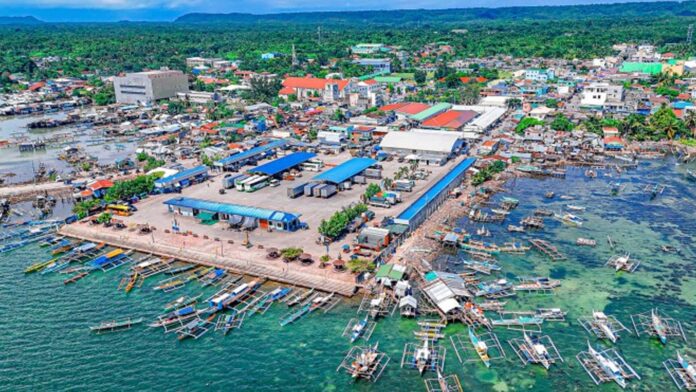At least 106 of 136 towns in Eastern Visayas got an income classification upgrade based on the new guidelines of the Department of Finance (DOF), an official said on Monday.
Also improved in terms of income are four of the six provinces and three of the seven cities in the region, said Maria Rosaura Espejo, head of the Bureau of Local Government Finance (BLGF) regional financial, monitoring, and evaluation unit.
Of the 106 municipalities with higher classification, 34 are in Leyte, 18 in Samar, 18 in Northern Samar, 17 in Eastern Samar, 12 in Southern Leyte, and seven in Biliran.
“This is an indication of whether an LGU (local government unit) can implement development programs. There will be a higher share of the national taxes for reclassified towns. With a higher budget, public service will improve and be appreciated,” Espejo said during a press briefing at the Philippine Information Agency office on Tuesday.
Considered as 1st class municipalities are those with an average annual income for three years of PHP200 million or more.
The 2nd class covers LGUs with an average annual income of PHP160 million but less than PHP200 million.
Qualified as 3rd class are towns with an income of PHP130 million or more, but less than PHP160 million, while belonging to the 4th class are municipalities with annual earnings of PHP90 million or more, but less than PHP130 million.
A town is considered as 5th class if their average annual revenue is less than PHP90 million.
Meanwhile, the four provinces that achieved higher income class are Biliran (from 4th class to 2nd class), Eastern Samar (from 2nd class to 1st class), Northern Samar (from 2nd class to 1st class), and Southern Leyte (from 3rd class to 1st class).
The three cities with upgraded classification are Baybay City in Leyte (from a 1st class municipality to a 1st class city), Catbalogan City in Samar (from 5th class to 3rd class), and Maasin City in Southern Leyte (from 4th class to 3rd class).
Espejo said the reclassification is based on the DOF department order was issued in November 2024. This is the first general reclassification of LGUs in the country since 2008. In the next years, the reclassification is automatic based on the new law.
On Oct. 24, 2024, President Ferdinand R. Marcos Jr. signed into law Republic Act 11964 on institutionalizing the automatic income classification of local government units to provide a more responsive approach to the promotion of local autonomy and to enable LGUs to realize their full economic potential.
The law, known as the “Automatic Income Classification of Local Government Units Act”, was crafted to provide LGUs with a more responsive approach to promoting local autonomy and local development.
The LGU income classification will serve as the basis for the identification of administrative and statutory aids, financial grants, and other forms of assistance to LGUs; the determination of LGU capability to undertake development programs and projects; the total annual supplemental appropriation for personal services of an LGU; and the compensation adjustment for LGUs personnel, pursuant to Republic Act 11466, or the “Salary Standardization Law of 2019.”
It could also serve as the basis for the creation of the new LGU, setting the number of elective members in the Sangguniang Panlalawigan and the Sangguniang Bayan, issuing a free patent title to residential lands, setting a minimum wage for domestic workers, insuring LGU properties with the Government Service Insurance System, and setting the limitation on the percentage of agricultural land area that can be reclassified and the manner of its utilization. (PNA)






